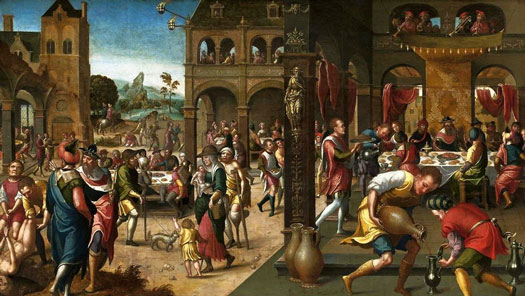I.Theme – Grow in trust and generosity as followers of Christ and discover new ways of living our stewardship. God rules over all creation

"The Tribute Money" – Jacek Malczewski (1908)
The lectionary readings are here or individually:
Old Testament – Isaiah 45:1-7
Psalm – Psalm 96:1-9, (10-13) Page 725, BCP
Epistle –1 Thessalonians 1:1-10
Gospel – Matthew 22:15-22
In the Isaiah reading God directs affairs of Israel’s adversaries. Isaiah 45:1-7 speaks of God’s anointing of Cyrus to help bring the deliverance of Israel out of exile
While the Jews were exiled in Babylon, the Persian emperor Cyrus began defeating neighboring kingdoms and letting the defeated peoples practice their own religions. Isaiah foresaw Cyrus defeating Babylon and liberating the captives there. The Jews would be free to return to Jerusalem. So in this passage, the prophet declares that Cyrus, even though a pagan, is God’s instrument, even God’s "Anointed," that is, "Messiah."
This is the only occurrence in the Old Testament of the term "messiah" referring to someone outside of the covenant community. Of Cyrus it is said that God calls him by name, language applied previously to Abraham and Israel, indicating a close relationship between God and his anointed ‘agent’. God’s sovereignty is, however, absolute: I am the Lord; there is no other
This was a daring thing to say by Isaiah so may have cost the prophet dearly.
Isaiah, while speaking to the Hebrews in exile about to return, gives us a glimpse of the kind of Messiah God would bring in Jesus–someone who would be an unlikely leader but one who would break through the gates and chains that kept the people separated from God–sin, the oppression by the religious elite, prejudice, poverty, racism, and all other barriers to freedom in God–Jesus would break these wide open.
What was going on among the Christians in Thessalonia that led Saint Paul to write? That unfolds slowly in the selections we’ll proclaim over five Sundays. From today’s text, it’s clear that these people worked hard at being Christians, and that Saint Paul thought that praiseworthy. Paul greets them with the assurance that God has chosen them for great works of faith
Thessalonia was a new Christian community less than a year old. Despite this newness the Thessalonians are held up as examples for all across the young church. The word example is one that speaks volumes for the Thessalonians were folk who did not shout about what they had done, but acted out that they had turned from idols and all that that lead to and in that living proclaimed the Good News.
The life and faith of the Thessalonians, in the face of persecution, is a sign that God has chosen them: they are imitators of the Lord and an example to others.
Psalm 96 sings praises to God who is the judge of the world, the judge of all nations, and reminds us that God is the one due our praise and worship, and that the whole earth is judged by God. Psalm 99 similarly sings of God as judge over the peoples, and that God hears the prayers of the prophets and priests who call on God’s name. Both psalms call upon the people to worship God and to remember that God is the one who is the judge of the world.
Matthew 22:15-22 is the story of how Jesus was questioned about paying taxes. He redirects Pharisees thought to God’s sovereignty.
The Pharisees were trying to trap Jesus, so they had the Herodians accompany them, members of the ruling family who were Hellenistic Jews–they had taken on the practices and culture of the Greeks and were mainly Jewish in name only, as they were privileged in living off of the wealth of the people and kept in power by Rome.
The question of whether or not it was lawful to pay taxes to the emperor was loaded. The tax in question was an annual tax, administered by Jewish authorities, but levied by Rome. This tax put such a burden on impoverished Jews in Palestine that, at least on one occasion, it provoked rebellion against Rome that ended the way Rome tended to end things – decisively and with much bloodshed.
When Jesus is asked about paying taxes, they are questioning his authority–is the Messiah really going to rise up against Rome, which means rising up against these Herodians, or is this Messiah a coward, going to bow to the pressure of Herod’s family under Rome?
So, if Jesus answers his opponents simply by saying yes, it is lawful to pay taxes to the emperor, then he risks alienating the poor and the oppressed who bore the greatest burden. And if he says, no, it is not lawful to pay taxes to the emperor, he risks facing charges of sedition. Jesus’ answer, therefore, is brilliant, as he allows for the possibility of paying these taxes but makes it clear to any person of faith that he or she must consider what belongs to God.
Jesus, in reminding them that the coin shows the Emperor’s face, saying the famous “Render unto Caesar what is Caesar’s and to God what is God’s,” shows that the Messiah is neither an earthly leader going to overthrow the Roman government nor is he a coward bowing to the pressures of the ruling class.
God is concerned about Godly things–which is everything. Since God has given everyone all that they have, everything belongs to God. Caesar may think he is God or may be called a god, but he is not. If one knows the one true God, then one knows that all things come from God. God is interested in how we use our resources, how we live on this earth, how we do what God has called us to do, and is less concerned about whether or not we pay taxes. It is how we use what we have been given to further God’s kingdom and remembering that God has given us everything that is important.

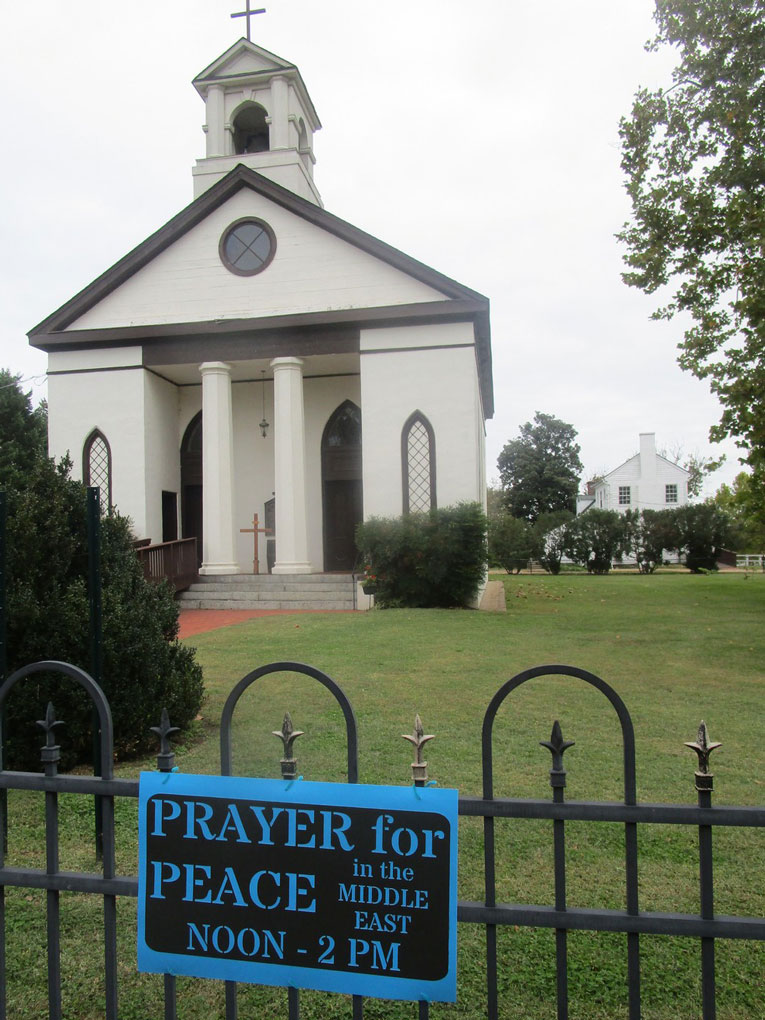
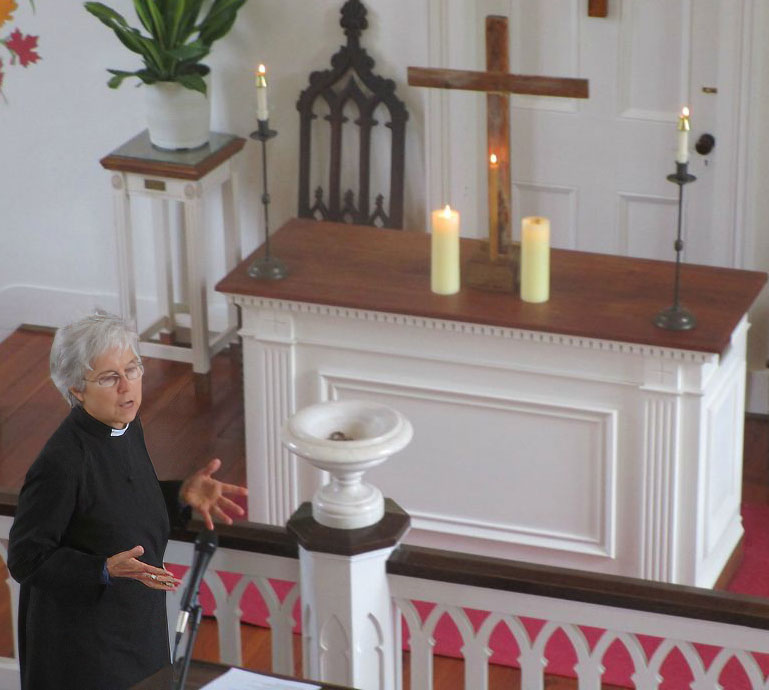
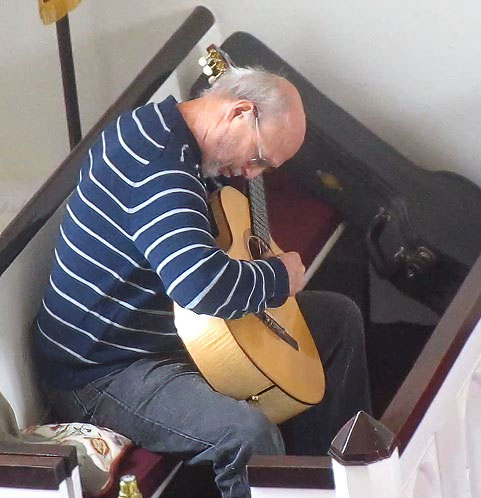

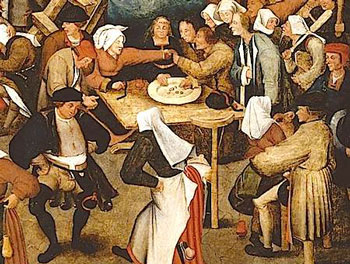

 Edward Gomez is Vicar of St. Paul’s/San Pablo Episcopal Church in Houston. His ministry has led him from the Lancandonan jungle of Mexico to the Peruvian province of Madre de Dios as a missionary, to the nonprofit world, where he has served in various leadership roles, including as the Executive Director of El Buen Samaritano Episcopal Mission in Austin. He is married to Denise Trevino-Gomez; they have three children and one adorable granddaughter.
Edward Gomez is Vicar of St. Paul’s/San Pablo Episcopal Church in Houston. His ministry has led him from the Lancandonan jungle of Mexico to the Peruvian province of Madre de Dios as a missionary, to the nonprofit world, where he has served in various leadership roles, including as the Executive Director of El Buen Samaritano Episcopal Mission in Austin. He is married to Denise Trevino-Gomez; they have three children and one adorable granddaughter.